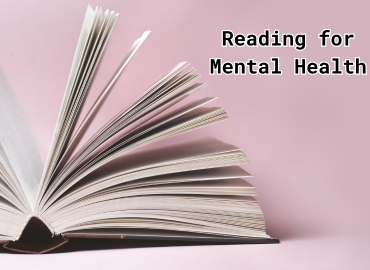Reading and Mental Health
For thousands of years, the written word has been one of the most powerful tools humanity has for sharing our thoughts with each other. From intricate physics equations to orange cranberry scone recipes, we put down our discoveries, feelings, dreams, plans, problems, and more in writing for others to read. We read words on an electronic screen, ink on paper, engravings on stone and metal, clay tablets, paint on concrete, carvings in wood, and any other material possible. It is how we share and preserve knowledge.
Did you know that reading can also be good for your mental health? The brain must go through some complicated exercises to transform the marks our eyes see (or that our fingers feel, if someone uses Braille) into coherent thoughts.
Here are some things our brains do when we read:
Pattern recognition, where the brain searches its memory bank to identify words and their meanings
Phonological recoding, where the brain links the words we see by building memories of the sounds from words we have heard and matching them to the words on the surface we’re reading them on
Syntactic and thematic processing, where the brain decides whether or not the words seen make sense in context with the words around them
Our brains have to use many different parts of themselves to read, and all must work together to accomplish this complicated task. These are some of the parts of the brain we use to read:
The visual cortex to perceive letters and words
The semantic cortex that stores the meanings of words
The auditory cortex that processes sounds, even ones that occur only in our heads
The phonological cortex that connects sounds, whether heard or just in our heads, to letters and letter combinations
The syntactic cortex that helps us perceive sentence structure and grammar
The occipito-temporal cortex that helps us recognize and remember words and their spelling
The temporo-parietal and inferior frontal cortices that help govern phonological processing
Another great thing about reading is that you can curate your intake in any way that brings you positivity. Take note of what you really like. Do you like your reading material calming or stimulating? Fiction or nonfiction? There are no rules for what you can have on your shelves. If
you want a book of childhood fairy tales next to a book on tax law, with the manual for a 2017 Honda Fit on the other side, that’s your right.
What kind of positive effects can reading have on your mental health?
Decreasing stress and anxiety. Reading commands the attention, removing the focus from things that stress us out.
Reducing stress on the body by encouraging a comfortable, stationary position, lowering heart rate, and lessening muscle tension.
Improving brain function by exercising the memory centers of the brain along with our mechanisms for learning new information.
Reading is healthful at any stage in life, from the moment we begin learning our letters to our sunset years when we use reading as a vital brain exercise to stave off or reduce mental decline.
Strengthening our vocabularies and writing abilities.
Increasing our empathy levels by expanding our perspectives through reading of others’ experiences.
Improving social skills by taking us through hypothetical social situations.
Improving sleep quality with reading as a relaxation exercise.
We want to encourage everyone to spend some time every day reading something you find edifying. If it’s been a while since you read a paper book, try turning your screens off and focusing on a book you can hold in your hands. Just like we encourage you to read, we encourage you to write as well. Journaling is an excellent way to form and articulate your thoughts as well as preserve them to use later.
When you work with a therapist, you can use your journal as a tool for recording information, analyzing it, identifying patterns, planning, and much more. For more information on talk therapy and our other services, write to us on our website or call (585) 442-6960. We look forward to hearing from you anytime.




